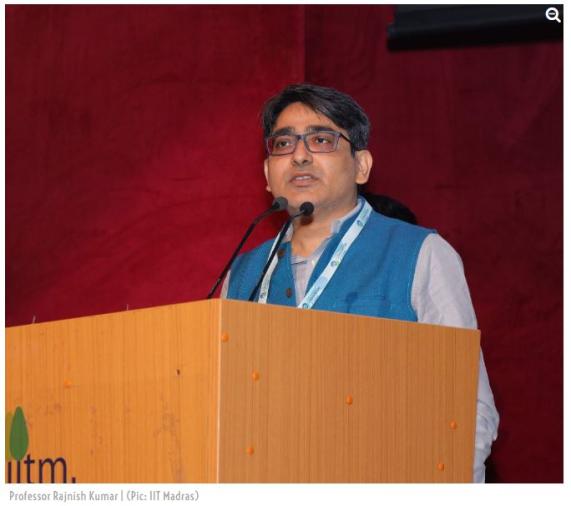
IIT Madras professor receives prestigious Shanti Swarup Bhatnagar Prize
- 12th Sep 2023
-
The New Indian Express - Edexlive
The SSB award is given annually by the Council of Scientific and Industrial Research for notable research
Professor Rajnish Kumar has been recognised with the prestigious Shanti Swarup Bhatnagar (SSB) Prize for Science and Technology for contributions to fundamental understanding of the nucleation and growth of clathrate hydrates, CO2 sequestration in solid hydrates, and methane recovery from marine gas hydrates. The SSB award is given annually by the Council of Scientific and Industrial Research (CSIR) for notable research.
Prof Kumar is a faculty member in the Department of Chemical Engineering. In 2018, he was recognised as a Highly Cited Researcher in Engineering. He is also a recipient of the NASI-SCOPUS Young Scientist Award for the year 2016. He has more than 10 years of experience in research and teaching, according to a press release from the institute.
Congratulating Dr Kumar on this recognition, Prof V Kamakoti, Director of IIT Madras, said, "Dr Rajnish Kumar's recognition with the Shanti Swarup Bhatnagar Prize for 2022 is a testament to his exceptional contributions to research. We at IIT Madras are immensely proud of his achievements, which not only reflect his brilliance but also exemplify the spirit of relentless pursuit of excellence in research. This prestigious award reaffirms our faith in the power of research and underscores the significance of pushing the boundaries of knowledge."
Accepting this recognition, Prof Kumar said, "I am extremely honoured to receive the Shanti Swarup Bhatnagar Prize. I would like to congratulate others who have also received the same award in different fields of science... Natural gas hydrates naturally occur beneath the sea-bed worldwide, and they can also be synthesised in the laboratory to provide technological solutions, from CO2 capture and sequestration to sustainable water purification.

